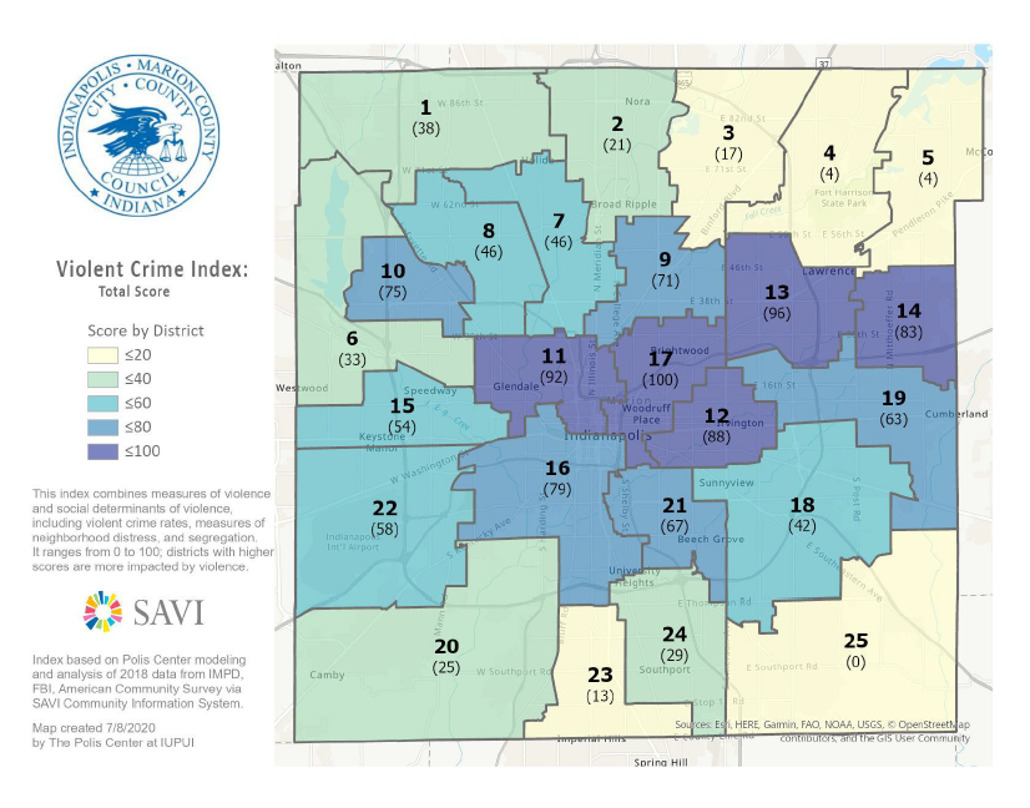Partnered with the City of Indianapolis to address inequities across neighborhoods
Lift Indy is a comprehensive community development program that promotes equitable neighborhood revitalization through affordable housing, economic development, and placemaking. Each year, the City of Indianapolis selects at least one strategic, focused area with market potential and makes a multi-year commitment of HOME Investment Partnerships Program (HOME) and Community Development Block Grant (CDBG) funding to achieve goals of the neighborhood’s plan. The program uses data to select eligible areas, and community teams submit program proposals for those areas. The selection of Lift Indy areas is a competitive three-step process.
As the COVID-19 crisis unfolded in 2020-21, Mayor Joe Hogsett, City staff, Polis, and other partners began exploring how the community development system could shift existing tools and resources to confront the effects of the pandemic. To help address the long-term needs of neighborhoods, DMD opened the 2021 Lift Indy round to an additional designee. Like the traditional Lift Indy model, both designees received a three-year commitment of HOME & CDBG dollars, but the new application process focused on investing in neighborhoods disproportionately impacted by the COVID-19 crisis.
Rather than requiring projects to be located in specific eligible areas as in previous years, DMD provided maps that show real estate, unemployment, and COVID-related health characteristics. Applicants were required to describe how they are addressing these and other crisis-related challenges in their neighborhoods. Place has a tremendous impact on health outcomes, economic mobility, and recovery, so the Lift Indy application process was particularly open to creative approaches to address the neighborhood-level impacts of the crisis.
The Polis Center/SAVI collaborated with the City of Indianapolis specifically in the following ways to help address neighborhood inequities:
- Participated in the City’s Government Alliance on Race and Equity, providing data and analysis support.
- Developed an equitable funding allocation model for the Indianapolis City-County Council. The model measured violence, social vulnerability, and the impacts of the coronavirus pandemic to show the disproportionate impacts of crime and inequitable access to opportunities. Funding was apportioned based on the model. The analysis also informed a new Council District Crime Prevention Grant program started in April 2021 by The Central Indiana Community Foundation (CICF), the City of Indianapolis Office of Public Safety, and the Indianapolis City-County Council.
- Supported the City of Indianapolis’ effort to address racial equity. In six workshops hosted by the city during its budgeting process, we presented equity data from SAVI demonstrating how data can be used to inform and measure equitable budgeting and service delivery. There were 71 participants from 30 departments.
- Helped the City of Indianapolis Department of Metropolitan Development (DMD) target grant funds in low-income communities most impacted by COVID-19. We provided online spatial information about recent unemployment claims and COVID-19 cases by ZIP code to support the Lift Indy Program, a multiyear community development program promoting neighborhood revitalization, affordable housing, and placemaking.
For more information, contact Sharon Kandris.


